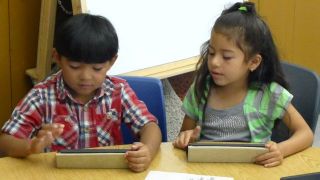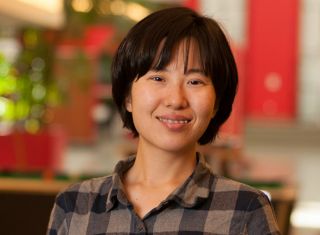Education
Making Learning Fun
An interview with Sooinn Lee about teaching math the fun way
Posted June 20, 2014

Summer officially begins this week and across the country, children are forgetting the lessons they learned last school year. Summer learning loss has the worst impact on children who are already behind. Whereas middle-class students may maintain reading proficiency, disadvantaged students can lose up to a grade level of progress. To raise awareness of the issue, June 20th is dedicated as Summer Learning Day.
I marked the occasion this year by speaking with Sooinn Lee, who recently gave a Ted Talk called, “When learning is painful.” Lee is the founder of LocoMotive Labs, where they have developed an iPad app, “Todo Math,” to help children from kindergarten to second grade hone their math skills.
Joshua Gowin: Why is learning over the summer important for children in kindergarten, first and second grade?

Sooinn Lee: 40% of kids don’t have the math skills they need when they start school. They have trouble counting and recognizing the numbers, skills they should have learned in preschool. Without those skills, it’s hard to catch up. If a kid in second grade still makes mistakes counting, it prevents further progress. So we have to build them up to that point before they start second grade skills. The clearest picture to predict future achievement is math ability during ages 3-7. If we want our kids to become engineers, we need to teach them math when they’re young.
JG: What are some of the biggest challenges to learning?
SL: We need real-time feedback to learn best. When you do worksheets on paper, it can be a long time before someone corrects mistakes. That is one of the biggest advantages of using technology. We can provide immediate feedback. This also engages learners. If a student has to do three worksheets, they will get bored. On Todo Math, learning is a game. There is a mission with 50 problems divided into eight games. When they finish a mission, they go on to the next to keep playing. Success is motivating; success is the biggest reward. It makes learning more fun.
JG: In your Ted Talk you say learning is painful. Why is it painful?
SL: There are two reasons I say that. First, I came from Korea. I was told from a young age that you need to learn to get good test scores. You need good test scores to go to university. You need to go to university to get a good job. You need a good job to be happy. That was the only formula I learned about happiness. When my son was born with developmental difficulties, I thought, “How can he be happy if he can’t get good test scores?” In Korea, your peers are your competitors in the classroom. But not all kids understand the lessons at the same speed. When you try to understand but can’t, it is painful.
Second, when I was young, my mom wanted me to have good test scores, so she got me into Kumon. It’s such a boring program. She spent lots of money on it. But there is no interaction. I filled out lots of worksheets, and then my mom would come and correct it with her red pencil, marking everything as right or wrong. I didn’t like that. That doesn’t take care of children’s needs. As a game developer, I wanted to help my son be motivated and entertained by learning. Our goal at LocoMotive Labs is to close the gap in learning. We hope children will learn at home and at school.
JG: What obstacles prevent children from learning math?
SL: Many children don’t understand written language, so they need visual concepts and symbols to help them learn. That can help build a bridge for children still struggling to read. Also, school teaches children at the same speed. But children learn at different speeds. Another is anxiety. Each failure can make wanting to learn harder. Finally, the learning needs to be connected to real life. That’s why we use problems that interest kids. If you have five cupcakes and I give you four more, how many will you have? They can see the pictures and build the concepts that prepare them for advanced learning.
JG: How can we help kids retain their learning over the summer?

SL: Both teacher and parent involvement is important for learning in summer. Some schools have 2-3 month breaks. The children who are ahead are usually ok. But the children who are at risk, who don’t fully understand the concepts when summer starts, they may lose more learning. It’s hard to catch up when you start behind. Children at risk need tools that will give them a chance to catch up over the summer. Apps and websites can help prevent learning loss over the summer for the kids who need it.
For more information about Summer Learning Day, visit the National Summer Learning Association website.
For more information about Todo Math, which launched yesterday (currently featured as one of the best new apps; see their launch promotion), visit the Locomotive Labs homepage.


